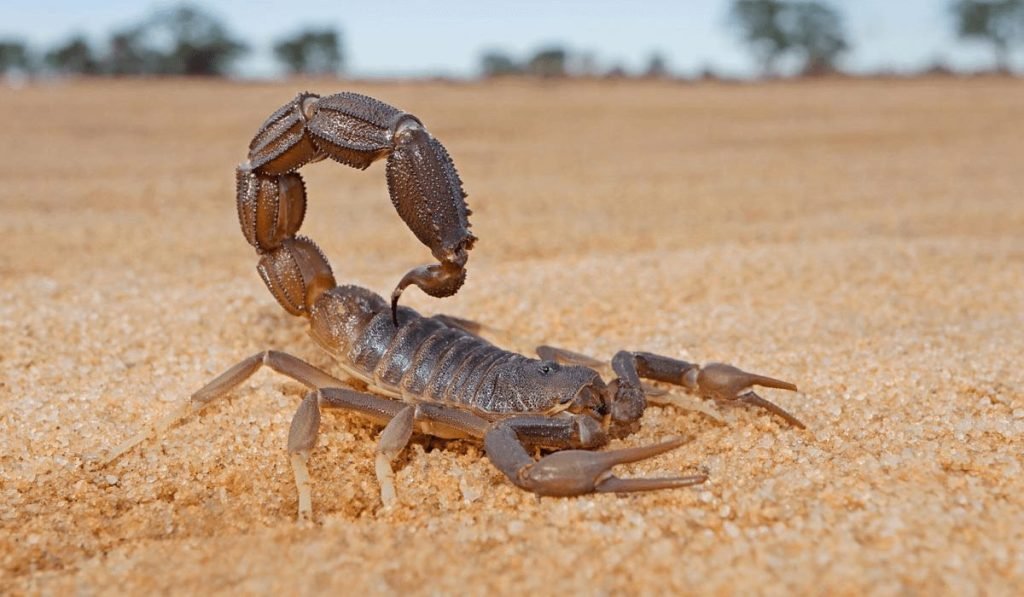Dubai, known for its stunning architecture and vibrant city life, is also famous for its picturesque deserts. Many tourists and locals alike embark on desert safaris to experience the beauty and tranquility of the dunes. However, the desert ecosystem is home to various insects and bugs that can sometimes disrupt this otherwise enjoyable experience. If you find yourself bitten by a bug during a Dubai desert safari, it’s essential to know how to handle the situation properly. In this article, we will guide you on what steps to take if you encounter a bug bite in the desert.
Before diving into the necessary steps, let’s understand the significance of bug safety during desert safaris. While bugs are an integral part of any ecosystem, some of them can cause discomfort and pose risks to human health. Understanding how to prevent bug bites and knowing the appropriate actions to take if you do get bitten will help you make the most of your Dubai desert adventure.
Common bugs found in Dubai deserts
Dubai’s desert region is home to various bugs and insects, each with its unique characteristics. Some of the common bugs you might encounter during a desert safari include mosquitoes, sandflies, ants, and spiders. These bugs are generally harmless, but their bites can cause itching, redness, swelling, and in rare cases, more severe reactions.

Mosquitoes are prevalent in the desert and can be a nuisance during the evenings and nights. Their bites can result in itchy welts. Sand flies are another common insect found in desert areas, and their bites can cause intense itching and discomfort. Ants, including fire ants, can also be present in some parts of the desert, and their bites can cause painful bumps or even allergic reactions in sensitive individuals. Lastly, while spiders are generally not aggressive, some species found in the desert can deliver bites that cause localized pain and swelling.
Precautionary measures before the desert safari
Prevention is always better than cure, and taking a few precautions before your desert safari can significantly reduce the chances of bug bites. Dressing appropriately is crucial to minimize exposure to bugs. Opt for loose-fitting, light-colored clothing that covers your arms and legs. Wearing long sleeves and pants can provide an additional layer of protection.
Additionally, applying insect repellent before heading out to the desert is highly recommended. Choose a repellent containing DEET or picaridin, as these ingredients are effective against a wide range of insects. Remember to reapply the repellent as per the manufacturer’s instructions, especially if you’re engaging in activities that may cause excessive sweating.
It’s also a good idea to inspect your clothing and gear for any bugs or insects before putting them on. Shake out your shoes, clothing, and blankets to ensure there are no hidden pests.
During the desert safari
While you’re exploring the mesmerizing desert landscape, it’s essential to stay vigilant and avoid direct contact with bugs. Keep an eye out for any signs of insects and maintain a safe distance. If you spot any bugs around you, refrain from swatting or trying to touch them. Instead, calmly move away or gently blow them away.
Using protective gear can also offer an added layer of defense against bug bites. Wearing a hat with a wide brim can shield your face from flying insects, while long-sleeved shirts and pants can provide physical protection for your arms and legs. Avoid wearing open-toed shoes and opt for closed-toe footwear to reduce the risk of insect bites on your feet.
It’s crucial to stay hydrated during your desert safari to avoid attracting bugs. Insects are often drawn to individuals who are dehydrated or have elevated body temperatures. By drinking plenty of water, you can minimize the chances of bug encounters.
What to do if you get bitten by a bug
In the unfortunate event that you do get bitten by a bug, it’s crucial to handle the situation promptly. Start by identifying the bug responsible for the bite, if possible. This information can help determine the appropriate course of action. Different bugs may cause varying reactions, and some bites may require specialized treatment.
Once you’ve identified the bug and assessed the severity of the bite, you can administer first aid accordingly. For most mild bug bites, gently clean the area with mild soap and water to prevent infection. Applying a cold compress or an ice pack wrapped in a cloth can help alleviate swelling and reduce itching. Avoid scratching the bite, as it can lead to further irritation and potential infection.
For mosquito bites, over-the-counter anti-itch creams or calamine lotion can provide relief. If you experience a more severe reaction or an allergic response, such as difficulty breathing or swelling in the face, lips, or throat, seek immediate medical attention. Allergic reactions to bug bites can be serious and require prompt treatment.
Seeking medical attention
While most bug bites are harmless and can be treated at home, there are instances where seeking medical attention is necessary. If you experience severe pain, or difficulty breathing, or notice signs of an allergic reaction, such as widespread rash, dizziness, or swelling in the face or throat, seek immediate medical assistance.
Additionally, if you develop symptoms like fever, nausea, or persistent pain after a bug bite, it’s advisable to consult a healthcare professional. They can evaluate your condition and provide appropriate medical care, including prescribing medications to relieve symptoms or prevent secondary infections.
Tips for bug bite prevention
In addition to the precautions mentioned earlier, there are several other measures you can take to minimize the risk of bug bites during your desert safari. Avoid perfumed lotions, scented soaps, and brightly colored clothing, as they may attract insects. Consider using citronella candles or mosquito coils to create a repellent effect around your camping or resting area.
Staying hydrated and well-rested also plays a vital role in preventing bug bites. Bugs are often attracted to people who are tired, dehydrated, or have elevated body temperatures. By ensuring you’re well-rested and adequately hydrated, you can lower the likelihood of attracting bugs.
Conclusion
Exploring the mesmerizing deserts of Dubai is an experience like no other, but encountering bug bites can put a damper on your adventure. By taking necessary precautions, such as dressing appropriately, applying insect repellent, and staying vigilant, you can reduce the chances of bug bites during your desert safari. In case of a bite, identify the bug, administer first aid, and seek medical attention if necessary. Remember, prevention and quick action are key to enjoying a bug-free and memorable desert experience.

